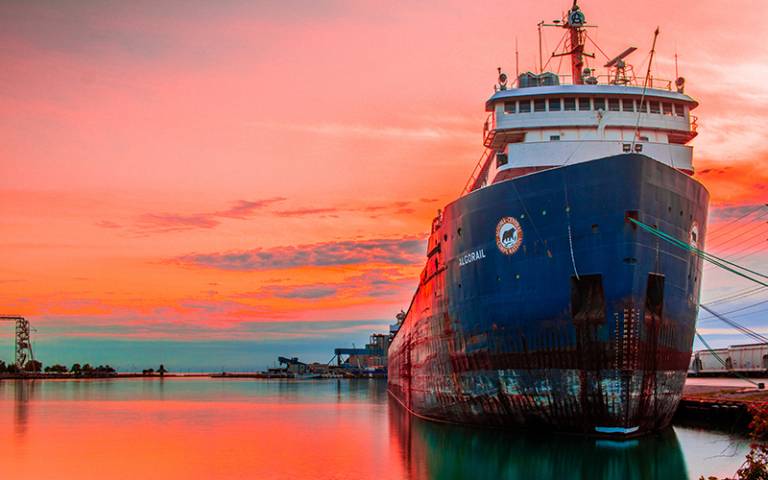New climate clauses for the shipping sector enable the private sector to take charge of emissions
17 November 2021
Decades of analysis from UCL Energy Institute researchers was used to guide the thinking and drafting of new clauses published by The Chancery Lane Project.

Businesses urgently need to act by setting and achieving their own climate targets, as was made evident by both the recent UN Climate Change Conference, and the recently published report A Strategy for the Transition to Zero-Emission Shipping, prepared by UMAS on behalf of the Getting to Zero Coalition.
Adding climate clauses to shipping contracts enables charterers and shipowners to embed decarbonisation targets in day-to-day business operations.
As part of its Net Zero Toolkit, The Chancery Lane Project has published three climate clauses for the shipping sector, which will help lawyers amend shipping contracts today to meet the decarbonisation targets. The new clauses were developed in collaborative workshops with significant input from UMAS researchers and other industry experts, and include:
- Ariel’s Clause, which enables owners and charterers to share the cost of fuel efficiency upgrades to time-chartered vessels to make these improvements more attractive to vessel owners.
- Aiden’s Clause, which encourages charterparties to increase disclosure on high carbon fuels and imposes a levy on fuels with a higher carbon content.
- Bradleigh’s Clause, which promotes more efficient use of a vessel by encouraging cooperation to maximise the laden ratio of the vessel and minimise repositioning voyages in ballast during a charter period.
Dr Nishatabbas Rehmatulla, Principal Research Fellow at UCL Energy Institute and Principal Consultant at UMAS said:
“The shipping climate clauses provide the opportunity for tangible action that can be taken by industry stakeholders including those from the recently launched initiatives such as the First Movers Coalition and Cargo Owners for Zero Emission Vessels as well as the Sea Cargo Charter signatories. They help to address the often overlooked but significant barriers to improving energy efficiency and reducing emissions, such as split incentives and informational problems. With greater use, the clauses can be improved and become the default choice to include in outdated charterparties.”
The Chancery Lane Project’s Net Zero Toolkit was launched last month and is designed to provide legal, business and sustainability professionals with the practical tools they need to embed net zero and sustainability commitments in their contracts. The toolkit ensures that legal agreements are aligned with contracting parties’ net zero targets and the 1.5 degree Paris Agreement goal to enable the most efficient net zero transition.
Matthew Gingell, Chair of The Chancery Lane Project and General Counsel at Oxygen House Group, said:
“Reducing greenhouse gas (GHG) emissions from shipping is challenging. Currently, these emissions are not covered by the Paris Agreement or the EU’s emissions trading system. Our new climate clauses provide the industry with an opportunity to take control of their GHG emissions and enable parties to collaborate to reach net zero by 2050. As almost 90% of goods are traded by sea, and demand for freight is expected to increase, it is vital to swiftly eliminate emissions from this sector.”
Links
- The Chancery Lane Project Net Zero Toolkit
- The Chancery Lane Project shipping clauses
- New Transition Strategy shows zero emission shipping is possible and requires all hands on deck
- Dr Nishatabbas Rehmatulla
- UMAS
- Shipping research at UCL Energy Institute
 Close
Close

